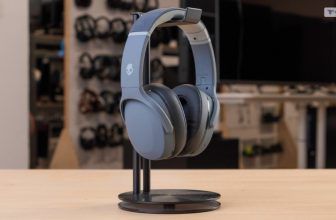
In today’s digital age, a laptop is as essential for a student as textbooks once were. However, choosing the right one can be daunting, given the myriad of options available and the varying needs of different academic disciplines.
This article explores the challenges in selecting a student laptop and provides practical solutions to make this decision easier.
Diverse Academic Requirements
One of the primary reasons choosing a laptop is challenging is the diverse academic requirements of students. A laptop suitable for an engineering student, loaded with software like AutoCAD or MATLAB, might be overkill for a humanities student who primarily needs a device for writing and research.
Similarly, students in creative fields such as graphic design or video editing require high-performance machines with superior graphics capabilities, which may not be necessary for other disciplines. If you don’t even write as much as a student, meaning that TrustMyPaper writes custom research papers only for you, you may need an even less powerful device, which will, in turn, mean it will be less expensive.
The key here is to understand the specific requirements of the student’s course of study. Engineering, architecture, and design students should prioritize processors and graphics cards, while those in writing-intensive programs might focus more on keyboard comfort and battery life. Balancing performance and practicality is essential, ensuring the laptop meets academic needs without unnecessarily inflating costs.
Budget Constraints
Another significant challenge is budget constraints. Students or their families may not always be able to afford high-end laptops, which often seem the best choice for academic and recreational use. However, the most expensive laptop is not always the best for a student. High price tags don’t always equate to better performance for specific academic needs, and often more cost-effective options are available.
To tackle budget constraints, it’s important to differentiate between ‘need-to-have’ and ‘nice-to-have’ features. Students should prioritize essential features such as processor speed, RAM, and storage based on their course requirements and consider less expensive brands or models that still meet them. Additionally, looking out for student discounts or refurbished models can be a smart way to get a good deal.
Evolving Technology

The rapid evolution of technology is another factor that complicates the choice of a student laptop. With new models and upgrades being released constantly, there’s always the worry that a laptop will become outdated quickly. This can be particularly troubling for students who need their laptops to last through several years of their education.
To mitigate this issue, students should look for laptops with a good balance of current technology and durability. Choosing a laptop with upgradable components like RAM and storage can extend its life. Additionally, investing in a slightly higher-spec model than currently needed can provide some future-proofing against evolving software and technology demands.
Portability and Durability
For students, portability and durability are also important considerations. A laptop that is too heavy or bulky can be a burden to carry around campus, while a fragile one may not withstand the rigors of student life. Students need a laptop that is light enough for mobility yet sturdy enough to handle daily wear and tear.
When considering these factors, students should look at the build quality and weight of the laptop. Laptops with a solid-state drive (SSD) are generally more durable and lighter than those with a hard disk drive (HDD). Choosing laptops with good build quality, preferably with a metal rather than a plastic body, can also ensure greater durability.
Solutions for Choosing the Right Laptop
To simplify the process of choosing the right laptop for a student, consider the following steps:
- Identify Specific Needs: Understand the specific software and performance requirements based on the student’s field of study.
- Set a Realistic Budget: Determine a budget that balances affordability with the necessary features.
- Focus on Essential Features: Prioritize key features like processor, RAM, storage, and battery life over luxury add-ons.
- Research and Compare: Look at different brands and models, read reviews, and compare specifications to find the best fit.
- Consider Future-Proofing: Opt for a laptop with upgradable components and slightly higher specs than currently needed.
- Evaluate Portability and Durability: Choose a lightweight, robust laptop that can withstand daily use.
How To Choose The Right Laptop For College?
Laptop is an indispensable part of modern-day education, and therefore, one, especially the students, must not be lenient and indifferent towards its selection. You will find many brands in the competitive market. But would you simply settle by picking up one randomly? In this section, we discuss some ways you can select the right Laptop for your college. So, let us get started with the discussion here.
Consider The Performance First
The first thing that you need to consider while choosing the right laptop is the performance. So you have to determine how much performance you require. You may require a powerful laptop if you use heavy-duty applications like Adobe Premier Pro. However, if your features are restricted to downloading music and word processing, then you may not have to select the best-quality laptops.
Size Of The Screen
Laptops are categorized according to their size. It starts with 11 inches and it can continue for upto 17 inches. Again, you have to ask yourself where and how you would use your laptop. Based on this you can select the screen of it.
Battery life
Be it a professional or a student, everyone wants a laptop with a strong battery. Unfortunately, selecting battery power is not easy. But in general, the heaver is the model, the better life you will get. Typically, larger laptops offer service between four and six hours. On the other hand, the larger laptops offer service upto around 6 hours.
Besides the one mentioned, you must also consider the touchpad, graphics, Keyboard, RAM, Storage, and all the factors before selecting the right laptop for your education.
In Conclusion
While selecting the right laptop for a student can be challenging, understanding specific academic needs, balancing budget with essential features, and considering portability and durability can greatly simplify decision-making. By following a strategic approach and making an informed choice, students can find a laptop that meets their academic requirements and provides a good value for their investment.
Read Also:






